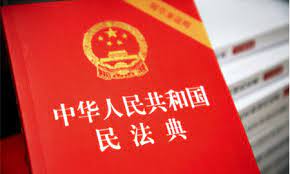
Article 165 Where the power is conferred by a mandate in a written form, the power of attorney shall clearly state the agent's name and the object of, power conferred by, and term of the mandate, to which the signature or seal of the principal shall be affixed.
Article 166 Where the object of a mandate is to be performed by several agents, they shall jointly exercise the power conferred, except as otherwise agreed upon by the parties.
Article 167 Where an agent knows or should have known that the object of the mandate is illegal but still performs it, or the principal knows or should have known that an agent's performance is illegal but fails to raise any objection, the principal and the agent shall be jointly and severally liable.
Article 168 An agent shall not perform any juridical act with itself in the name of the principal, unless it is consented to or ratified by the principal.
An agent shall not perform any juridical act in the name of one principal with any other principal represented by it at the same time, unless it is consented to or ratified by both principals.
Article 169 Where an agent needs to appoint a third party to perform the object of the mandate in its place, the agent shall obtain the consent or ratification of the principal.
With the principal's consent to or ratification of the appointment, the principal may directly instruct the third party appointed by the agent regarding the object of the mandate, and the agent shall only be liable for the selection of the third party and its instructions to the third party.
Without the principal's consent to or ratification of the appointment, the agent shall be liable for the acts of the third party appointed by the agent, unless it is necessary for the agent to appoint the third party in case of emergency to safeguard the interests of the principal.
Article 170 Where a person who performs tasks for a legal person or an unincorporated organization conducts juridical acts related to matters within his or her scope of powers in the name of the legal person or the unincorporated organization, such acts shall have binding force on the legal person or unincorporated organization.
Any restrictions imposed by a legal person or an unincorporated organization on the scope of powers of the person performing tasks for the legal person or unincorporated organization shall not be set up against bona fide opposite parties.
Article 171 Where an actor still performs an act of agency without a power of attorney, beyond his or her power of attorney, or after his or her power of attorney terminates, the act shall not be binding on the principal without the principal's ratification.
The opposite party may, by a notice, urge the principal to ratify within 30 days from the date of receipt of the notice. If the principal fails to respond, ratification shall be deemed denied. Before the ratification of the act, the bona fide opposite party shall be entitled to revoke the act. The revocation shall be made by a notice.
Where ratification of the act is denied, the bona fide opposite party shall be entitled to request that the actor perform obligations or compensate it for any injury suffered by it, but such compensation shall not exceed the interest that could have been obtained by the opposite party if the act were ratified by the principal.
Where the opposite party knows or should have known that the actor has no power of attorney, the opposite party and the actor shall assume liability according to their respective faults.
Article 172 Where an actor still performs an act of agency without a power of agency, beyond his or her power of attorney, or after his or her power of attorney terminates, the act shall be valid if the opposite party has reason to believe that the actor has the power of attorney.